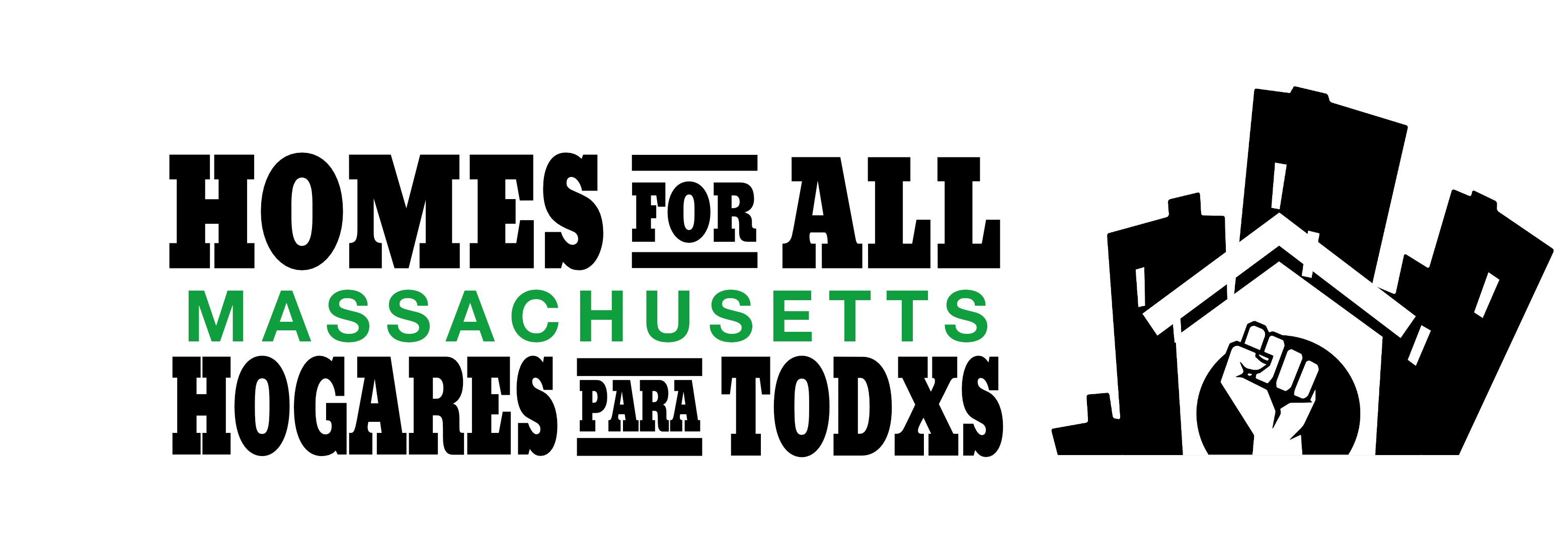
Update: this page is for historical reference only. Unfortunately the legislature did not pass H.4878/S.2831, An Act to Guarantee Housing Stability ("the COVID-19 Housing Equity bill").
Questions and Answers - H.4878/S.2831, An Act to Guarantee Housing Stability
H.4878/S.2831, An Act to Guarantee Housing Stability during the COVID-19 Emergency & Recovery, is urgently needed to protect public health, prevent a resurgence of COVID-19, and move towards an equitable recovery from the economic crises the coronavirus has brought on. It protects tenants and homeowners while stabilizing small-scale landlords. A summary of the bill’s provisions is included in this sign-on letter.
What’s the scale of the potential COVID-19 eviction crisis?
Data and analysis from one source after another shows a terrifying wave of evictions and foreclosures is likely if we don’t act. A new MAPC analysis shows over 100,000 households across the state will be unable to keep up with rent or mortgage payments due to the impact of COVID-19. Housing Court officials and landlord advocates have predicted there will be 15,000 new eviction cases in the court system immediately following the end of the eviction moratorium on top of thousands filed before the moratorium was in effect. And an analysis of census bureau data paints a similarly bleak picture.
Why is this a public health issue?
Formal and informal evictions would force families to enter an already overcrowded shelter system or begin a period of dangerous housing instability. Displaced families would be forced to move from one overcrowded “doubled up” situation to another, violating social distancing and risking spread of the virus with each move.
Why is this is an issue of racial justice, economic justice, and equity?
Black people and communities of color were disproportionately impacted by the housing crisis before COVID-19, and have also been hit hardest by the virus and related economic impacts. Mass evictions would have a devastating impact on people of all backgrounds across the state, but would particularly harm people of color and working class neighborhoods.
What about the federal moratorium? Or extending the state moratorium?
The federal CDC order does not provide any protections for homeowners or landlords. Further, neither the CDC order nor our state moratorium addresses the arrearages that are accumulating to tenants and homeowners through no fault of their own.
The Housing Stability bill addresses these gaps by preventing a wave of unnecessary evictions and foreclosures, providing needed protections for homeowners and small-scale landlords as well as tenants.
Is the Housing Stability bill just an extension of the moratorium on evictions?
No. This bill addresses needs of homeowners and small-scale landlords, as well as tenants.
The eviction protections in this bill are more targeted than the protections in the moratorium, with a focus on people whose incomes were affected by COVID-19.
This bill bans eviction of a tenant for nonpayment of rent IF the nonpayment was due to the impact of COVID-19. It also halts no-fault evictions for one year following the end of the Governor’s declared emergency.
Other types of evictions can go forward including: threats to health or safety, some lease violations, and evictions for non-payment of rent that is unrelated to COVID-19. Owner-occupant landlords would be exempt from the ban on “no-fault” evictions.
Does this “cancel" rent?
No. This bill, like the current moratorium, makes clear that rent is still owed, and only prevents landlords from evicting and removing a tenant for non-payment where the failure to pay is attributable to the pandemic. Landlords could still bring civil claims for rent owed in Housing Courts, and tenants and landlords would be encouraged to seek rental and other assistance.
Does this bill help landlords?
Yes. This bill extends the ban on foreclosures and makes mortgage forbearance available to larger landlords. Lenders are required to offer plans that allow missed mortgage payments to be put on the end of the loan.
The bill also strengthens the mortgage forbearance provisions by ensuring there are enforcement options against lenders who fail to provide required forbearance options and terms.
Finally, bill will also create an assistance fund for landlords, giving priority to owner-occupants and small-scale landlords.
Who supports this bill?
90 Senators and Representatives have signed on as co-sponsors. The long and growing list of community supporters is on the Homes for All - Mass webpage, and includes the MA AFL-CIO, Mass Senior Action, the Black Ministerial Alliance of Greater Boston, MCAN, Progressive Massachusetts, Catholic Charities of the Archdiocese of Boston, and many more groups from across the state.